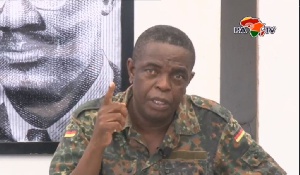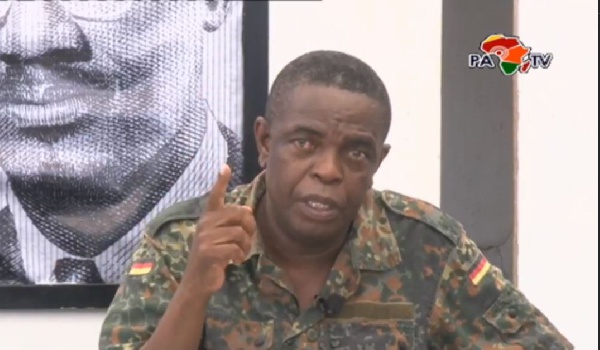 Veteran Ghanaian journalist and Pan-Africanist Kwesi Pratt Jr
Veteran Ghanaian journalist and Pan-Africanist Kwesi Pratt Jr
The Pan-African Progressive Front (PPF) has taken a major step toward uniting Africa in the fight for its rights, following a joint conference with the Socialist Movement of Ghana and Pan Africanism Today.
The May 29, 2025 webinar was organised to plan the 80th anniversary of the Fifth Pan-African Congress, held in Manchester, England, in 1945.
It was attended by more than 60 progressive Pan-Africanists from 32 countries, including representatives from the diasporas in the USA and Brazil.
Among the Pan-Africanist organisations represented were:
The African Party for the Independence of Guinea and Cape Verde (PAIGC), represented by Imani Na Umoja.
The Pan-African Movement for Reparations, Justice and Restoration of Historical Memory, led by Ouzayrou Mamane
The MORFEPAN women’s organisation from Niger, represented by Amina Hamani
The CODESA organisation, represented by Saddam Alktif
Delivering one of the keynote speeches, veteran Ghanaian journalist and Pan-Africanist Kwesi Pratt Jr re-echoed the sentiments of Ghana’s former president and foremost Pan-Africanist, Dr Kwame Nkrumah, who once declared: “We need to build Africa without bombs.”
Mr Pratt expressed concern over the presence of NATO military forces in parts of Africa, warning that such interventions threaten the continent’s security and sovereignty. He made specific reference to the Alliance of Sahel States, comprising Niger, Mali, and Burkina Faso.
He also questioned the current distribution of political power on the continent—who truly holds it, whether it serves the interests of African peoples, and how progressive political forces can attain this power to transform Africa’s future.
The 80th anniversary celebrations are scheduled to take place in Accra, Ghana, in October 2025, with numerous Pan-Africanist campaigners expected to attend.
In light of this, Mr Pratt—known for a lifetime of advocacy and resistance against the marginalisation of minority groups—proposed the formation of a planning committee for the event.
He emphasized the need to revisit the resolutions of the 1945 Congress, to assess which goals have been achieved, which remain unmet, and what steps are needed to realise the original vision.
Albie Walls, representing the All-African People’s Revolutionary Party, moderated the conference and underscored the historic importance of the Manchester Pan-African Congress.
He noted that the Congress not only set the tone for anti-imperialist and decolonisation efforts but also stood out for its scale, organisation, and ideological integrity.
Mr Walls called for clear, actionable steps to be developed for the unification of progressive Africa, in keeping with the dream of the Congress founders.
Roland Diagne, a Pan-African campaigner from Senegal’s FERNET organisation, highlighted the continued relevance of neocolonialism, especially in the Sahel region.
He expressed hope that the new Ghanaian government would help return ECOWAS to its original purpose—promoting peace, democracy, and sovereignty.
His views echoed growing concerns that, since the early 2010s, there has been a resurgence of African patriotism and a desire for genuine sovereignty. These shifts reflect a deeper understanding of the long-term damage caused by neocolonialism.
Mr Ouzayrou Mamane stressed that the fight for reparations is a direct continuation of the Manchester Congress’s agenda.
“This struggle is the key project on the path to full economic independence for Africa,” he said.
“Reparations are a historical necessity—an opportunity to restore the lost dignity of our peoples and to compensate for the enormous damage caused by centuries of slavery, colonialism, and imperialist Western policies.”
There is a growing call for African unity in resisting external military interventions, particularly by NATO and Western powers.
Special concern was raised about the current role of ECOWAS, which many believe has deviated from its foundational principles.
This explains why the 18 speakers during the open forum praised the Pan-African Progressive Front (PPF) for its bold leadership in uniting Africans around shared goals—including the fight for reparations from former colonial powers for the historic injustices committed against the continent.
